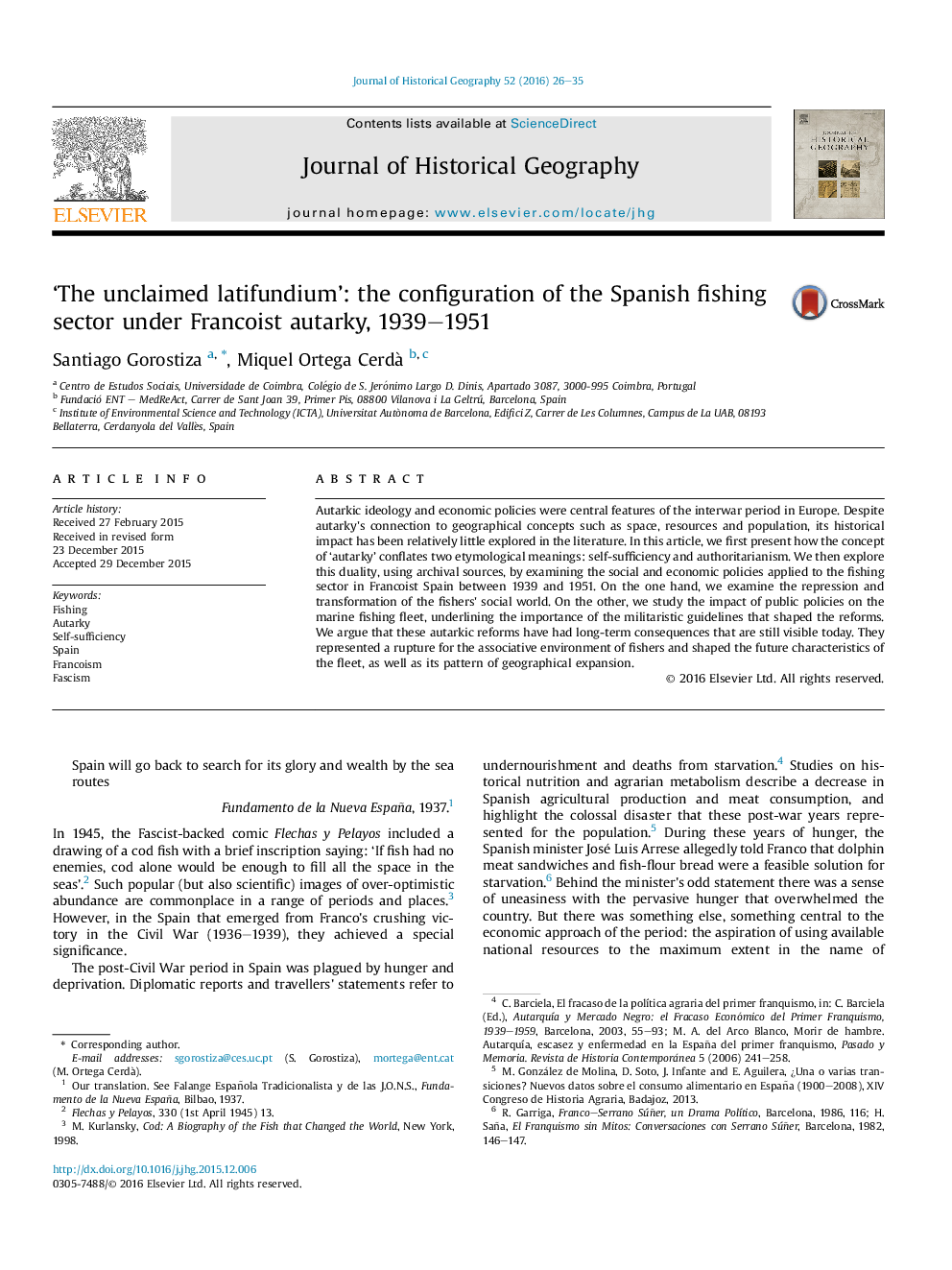| Article ID | Journal | Published Year | Pages | File Type |
|---|---|---|---|---|
| 1038926 | Journal of Historical Geography | 2016 | 10 Pages |
•Uses the dual concept of autarky/autarchy as a lens to analyse fishing reforms in Fascist Spain.•Examines how autarky/autarchy can intertwine socio-political and economic/environmental issues.•Understands economic self-sufficiency policies together with repressive social policies.•Exposes the strategic military role that the fishing fleet had in Francoist Spain.•Argues that Francoist autarkic reforms were important for the development of the current fisheries sector in Spain.
Autarkic ideology and economic policies were central features of the interwar period in Europe. Despite autarky's connection to geographical concepts such as space, resources and population, its historical impact has been relatively little explored in the literature. In this article, we first present how the concept of ‘autarky’ conflates two etymological meanings: self-sufficiency and authoritarianism. We then explore this duality, using archival sources, by examining the social and economic policies applied to the fishing sector in Francoist Spain between 1939 and 1951. On the one hand, we examine the repression and transformation of the fishers' social world. On the other, we study the impact of public policies on the marine fishing fleet, underlining the importance of the militaristic guidelines that shaped the reforms. We argue that these autarkic reforms have had long-term consequences that are still visible today. They represented a rupture for the associative environment of fishers and shaped the future characteristics of the fleet, as well as its pattern of geographical expansion.
